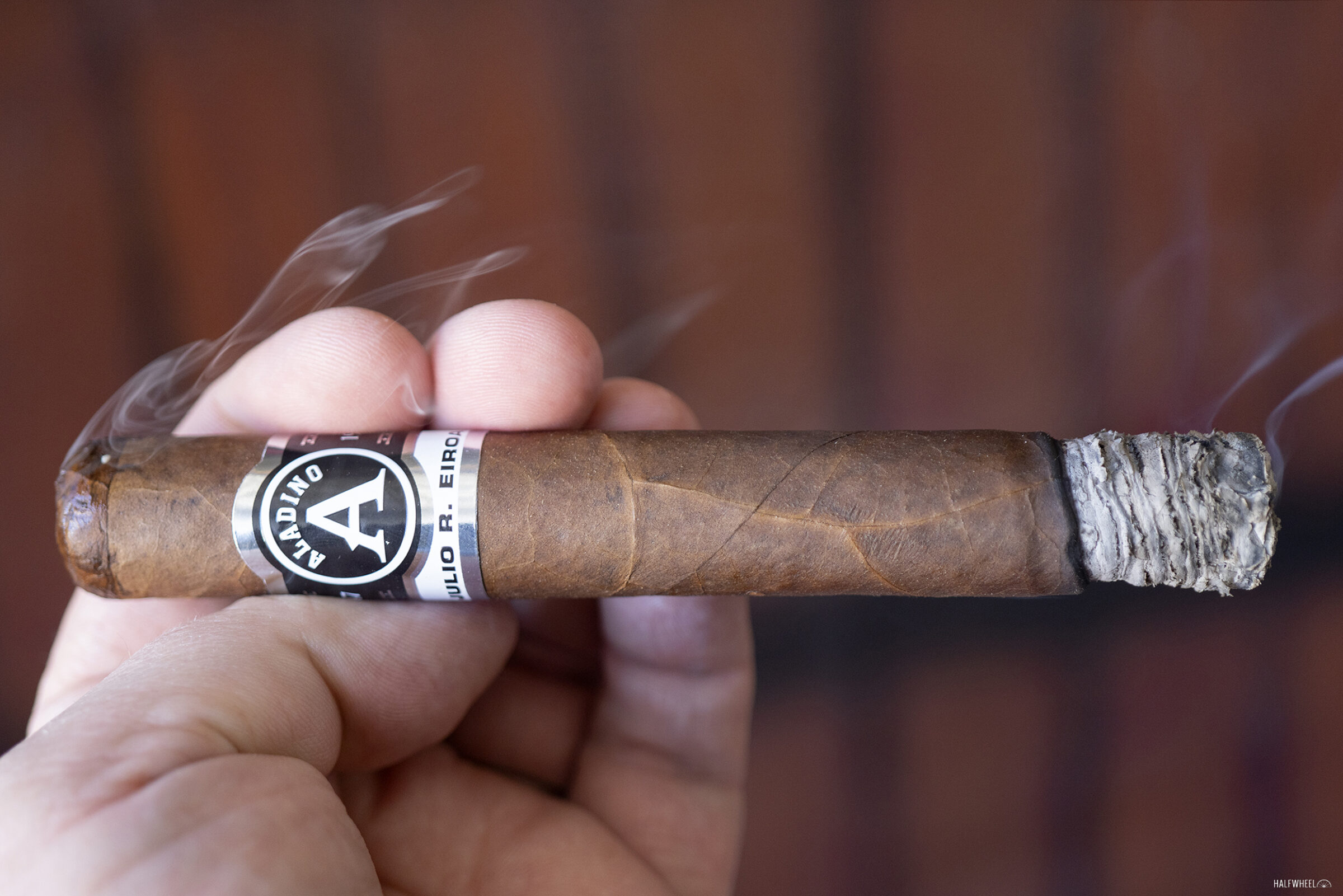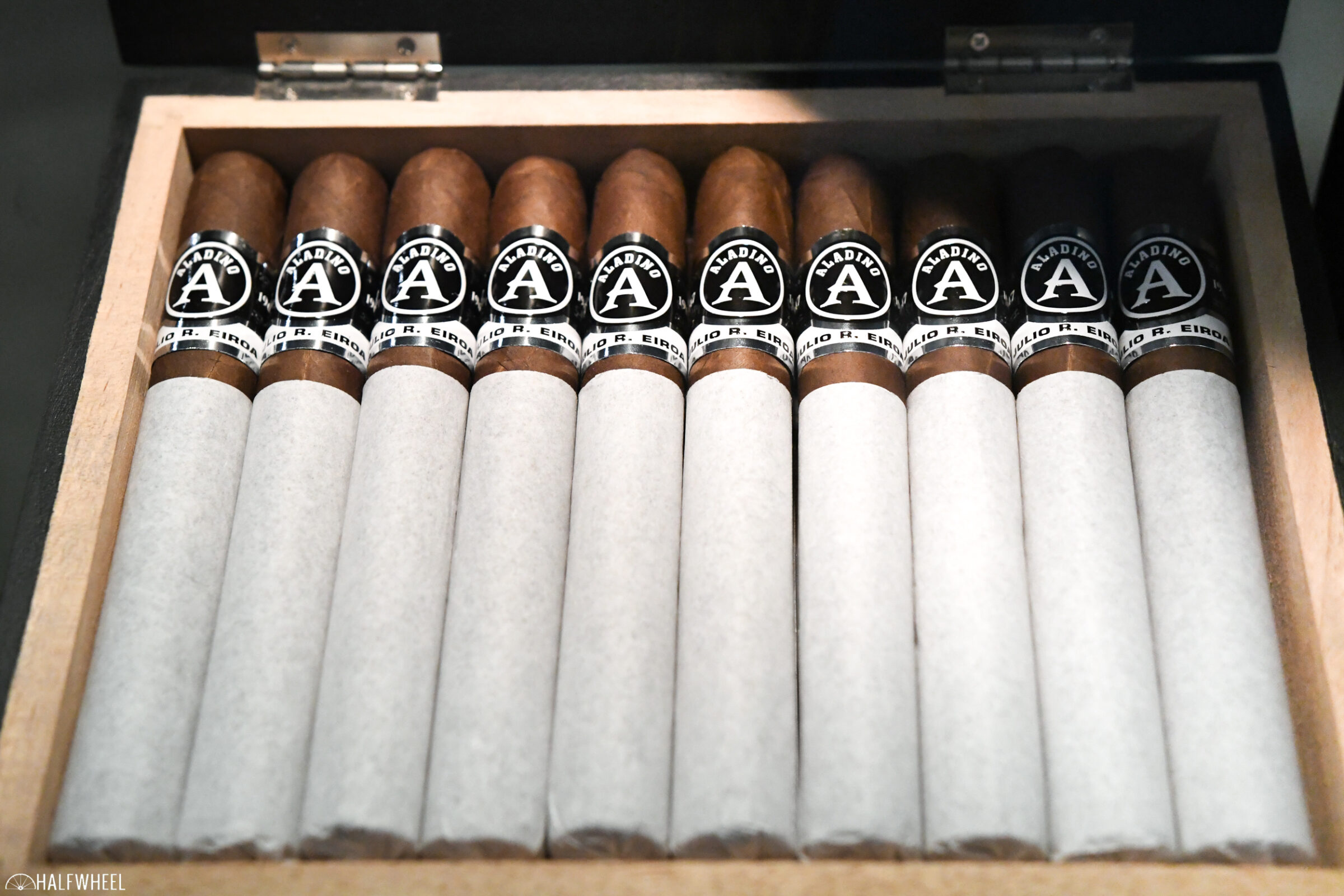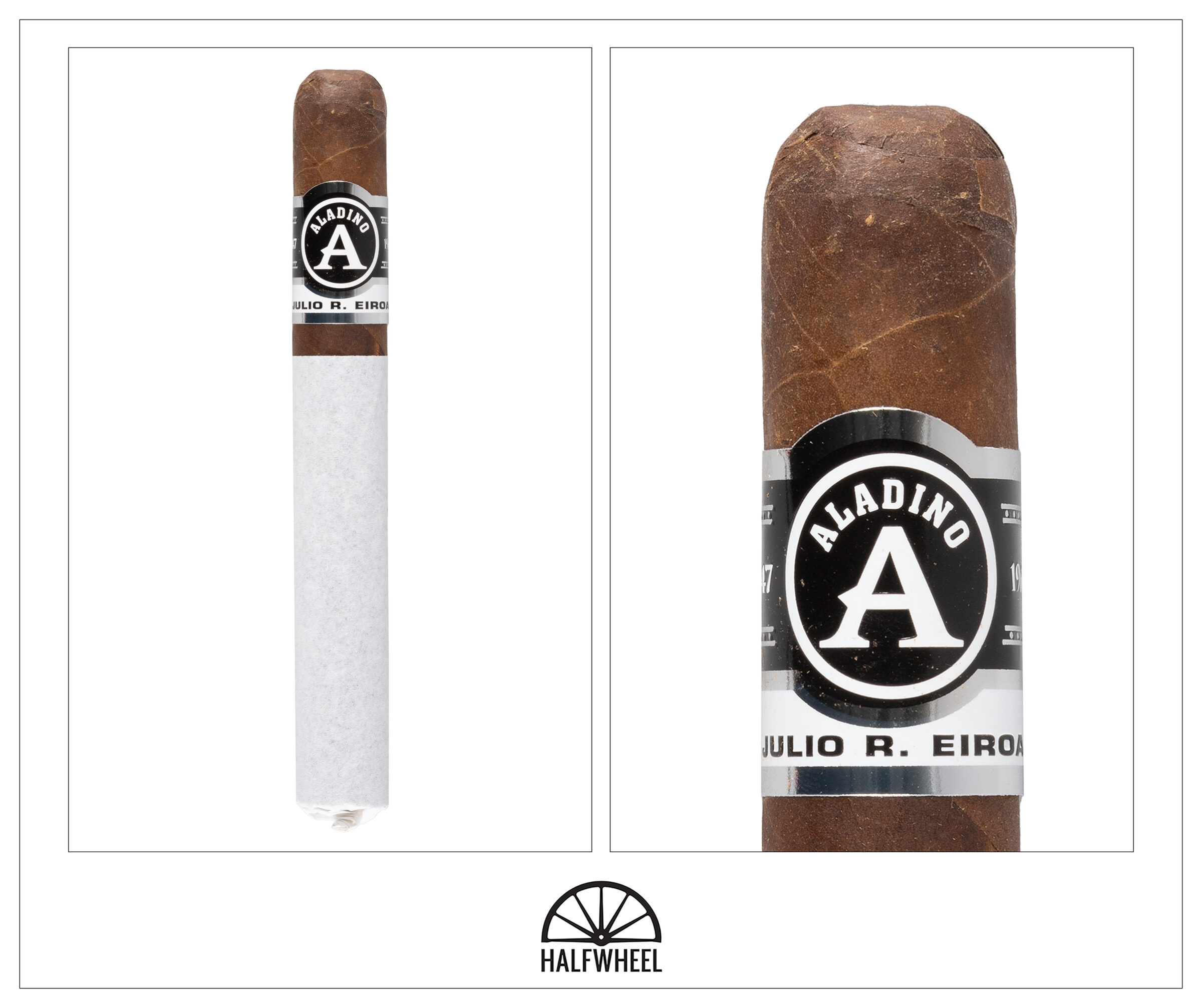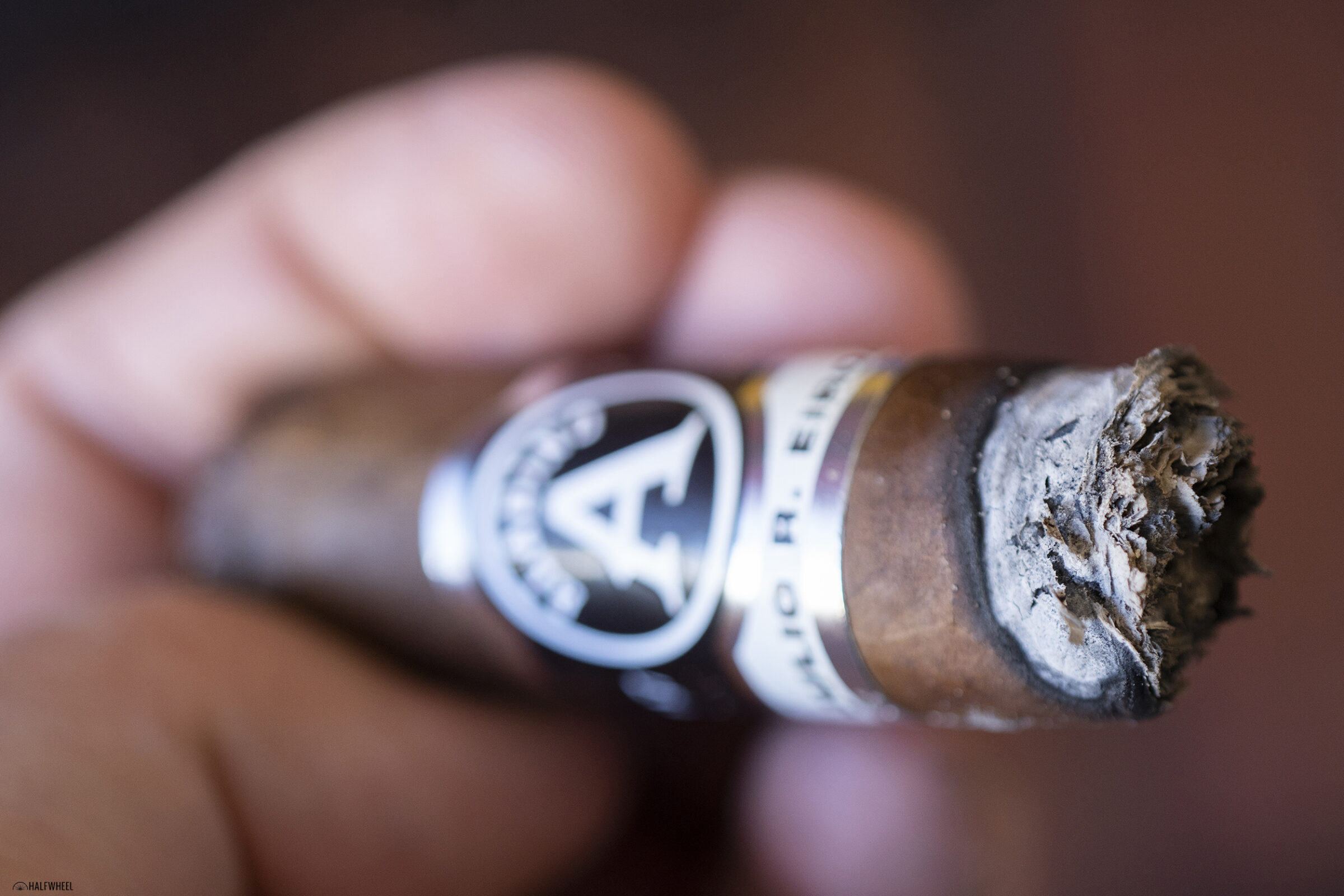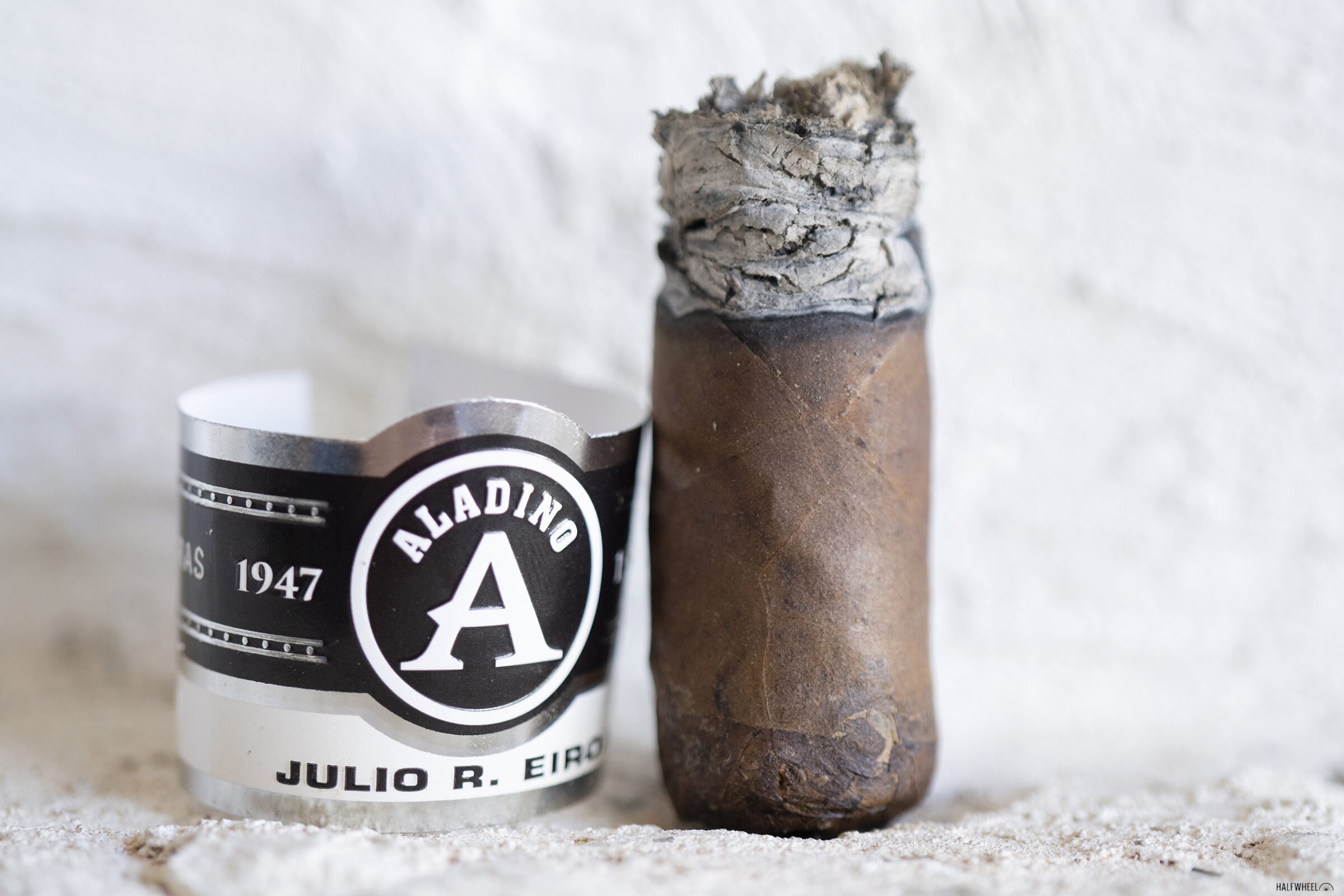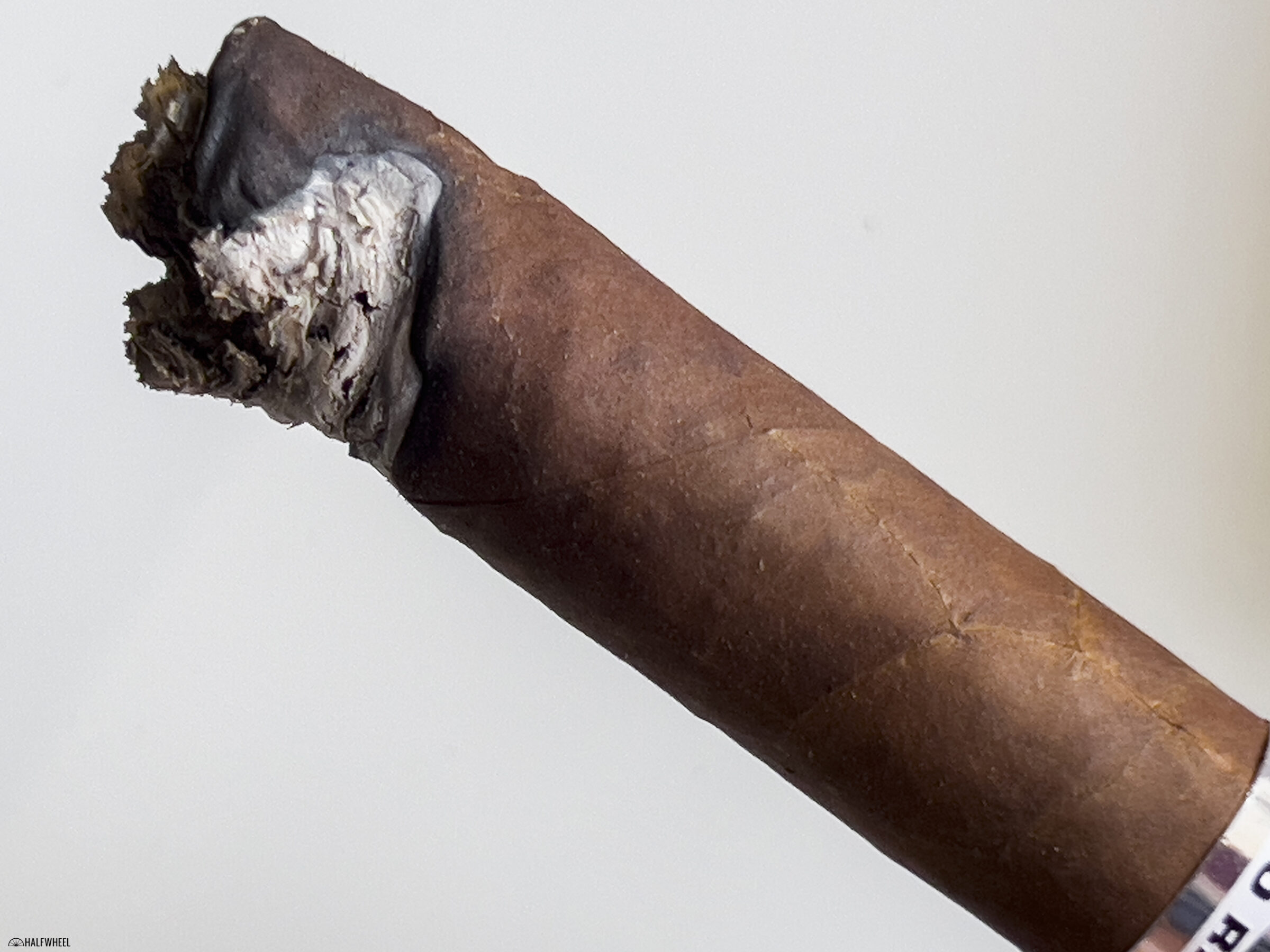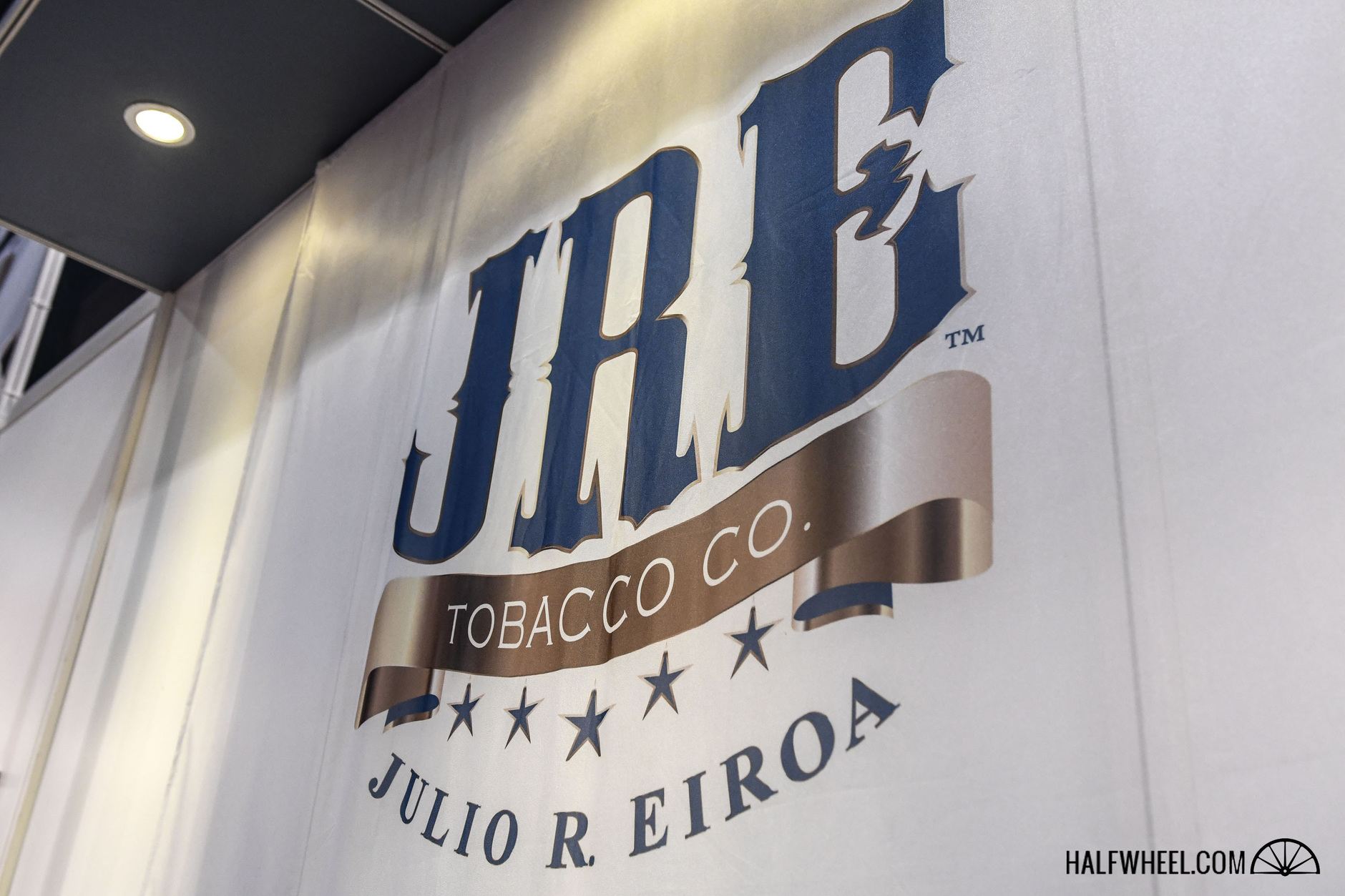Experimentation is a huge part of developing new cigar lines, and I am often impressed with how long some companies spend developing new blends. The Aladino Sumatra is a prime example of this: Julio and Justo Eiroa actually started planting Sumatra-seed tobacco at the Eiroa family’s farm located outside Danlí, Honduras in 2016, but it took seven years until a blend with that wrapper was ready to be sold, two different blends actually.
While the outside of the Aladino Sumatra is covered with that aforementioned wrapper, the company describes the internal blend as “tobacco varieties of undisclosed origin from (the) JRE Tobacco Farm” in Honduras. At launch, the line included just one vitola—a 6 x 52 toro—that has an MSRP of $16 each and packaged in 20-count boxes.
As with all of JRE Tobacco Co.’s cigars, the Aladino Sumatra Toro is made at the company’s Fábrica de Puros Aladino at Las Lomas Jamastran factory in Honduras and boxes of the new release started shipping to retailers in early October.
- Cigar Reviewed: Aladino Sumatra Toro
- Country of Origin: Honduras
- Factory: Fábrica de Puros Aladino at Las Lomas Jamastran
- Wrapper: Honduras (Sumatra)
- Binder: Honduras
- Filler: Honduras
- Length: 6 Inches
- Ring Gauge: 52
- Vitola: Toro
- MSRP: $16 (Box of 20, $320)
- Release Date: October 2023
- Number of Cigars Released: Regular Production
- Number of Cigars Smoked For Review: 3
After removing the paper wrap that covers the bottom three-fourths of the cigar, I see that the Aladino Sumatra Toro is covered in a medium brown-colored wrapper that is broken up with some extremely light veins—albeit not protruding at all—which make a great contrast and remind me of cracks in dark earth during an extended drought. In addition, the wrappers are all relatively smooth to the touch and feature just a hint of oil, and all three cigars are nicely firm to the touch with no soft spots. Aromas from the wrappers include dark chocolate, earth, barnyard, and leather along with a light grassiness. Scents from the feet of the cigars are stronger and slightly more distinct, with nutmeg leading generic nuttiness, earthiness, straw and a sweet milk chocolate note. Finally, after a straight cut, the cold draws bring flavors of creamy nuts, sweet hay, light citrus peel, leather, toasted bread and gritty earth.
Starting out, the Aladino Sumatra Toro begins with a light amount of spice on my tongue combined with some espresso bitterness, both of which stick around but are quickly overtaken by flavors of creamy cashews and cedar. Secondary notes of earth, leather, sourdough bread, lemongrass and cocoa nibs flit in and out at various points, and I notice a small amount of mineral saltiness on my lips on two of the cigars that seem to be getting stronger as the first third burns down. The retrohale is quite smooth and is made up of equal amounts of both white pepper and caramel sweetness, both of which seem to be getting a bit stronger as time goes on. Flavor ends the first third at medium-plus, strength is at a point under medium and the body is at the mild-plus mark. Construction-wise, although there are no issues at all with either the smoke production or the draws, two of the three cigars have large enough problems that I am forced to touch them up with my lighter once each.
There are no major changes in the main flavors of the Aladino during the second third: the cedar and creamy cashew combination continues to top the profile with ease, followed by additional flavors of cinnamon, earth, coffee beans, toasted bread, hay and a small amount of citrus peel. The amount of mineral saltiness on my lips slightly increases while the retrohale continues to be full of both caramel sweetness and white pepper. Flavor increases enough to land at medium-full, strength bumps up to a solid medium, and the body hits a point just under medium. When it comes to the construction, all three cigars run into burn issues that necessitate corrections, but the draws and smoke production continue to be trouble-free.
An interesting but fleeting mint leaf note becomes noticeable on the finish during the final third of the cigar, and while it does not stick around very long, it does add to the overall profile while it is present. The main flavors continue to be creamy cashew and cedar, followed by more dank earth, plain oatmeal, cinnamon, lemongrass and dark chocolate. In addition, the mineral saltiness continues to remain noticeable until the end of the cigar, and while there is a bit more of the distinct caramel sweetness on the retrohale for all three cigars, the amount of white pepper has not changed at all. Flavor bumps up again to land firmly at full, while the body increases enough to hit a solid medium where it joins the strength that has not budged. Finally, two of the three cigars continue to have burn issues that need correcting, but all three cigars exhibit excellent draws and plenty of smoke until I put the nubs down with an inch left.
Final Notes
- As mentioned above, this cigar is actually the second blend to utilize a Sumatra wrapper grown on JRE’s farm. The first was the Aladino Lounge Exclusive that was released in June and is only available at the three branded Aladino Lounges: The Cigar Vault in Austin, Texas, Final Third Cigar & Whiskey Lounge in Indianapolis, Ind. and Nelson Loguasto’s Cigar in Greensburg, Pa.
- Fans of the Aladino brand may notice that the boxes used for the Sumatra Toro are quite different than those the company packs its other cigars in, including the fact that there is no Aladino painting on the inside of the box. According to the company, the more modern look was championed by the family’s fourth-generation members, who were given a more involved role with this release.
- I have not tasted mint leaves in many cigars over the years, but the vast majority of the blends I have experienced the flavor with have been wrapped in a Sumatra wrapper.
- The white pepper that I noted on the retrohale combines wonderfully with the delicate sweetness of caramel that is also present throughout the cigar.
- Sumatra is only the second Aladino-branded line from the company to use a paper wrap around the bottom of the cigar; the Corojo Reserva was the first.
- As noted above, burn issues plagued each of the three cigars, and while most of them were relatively minor in nature and did not affect the overall flavor profile in any significant way, the first third of my last cigar needed a bit more work than the other two.
- The cigars smoked for this review were purchased by halfwheel.
- Final smoking time averaged one hour and 49 minutes for all three samples.
- If you would like to purchase any of the Aladino Sumatra cigars, site sponsor Atlantic Cigar Co. has them for sale on its website.
I have rarely come across an Aladino blend that I have not enjoyed when it comes to flavors, and the Aladino Sumatra Toro continues that trend. The profile is full of flavors that compliment each other nicely, including creamy cashews, cedar, white pepper and caramel sweetness, as well as an interesting—albeit fleeting—mint note in the final third. Having said that, I experienced some significant construction issues when it came to the burn; in fact, all three of the cigars needed multiple corrections with my lighter to stay on track. In the end, the Aladino Sumatra Toro is well worth the price of admission from a flavor standpoint, but be sure to keep your lighter handy.

